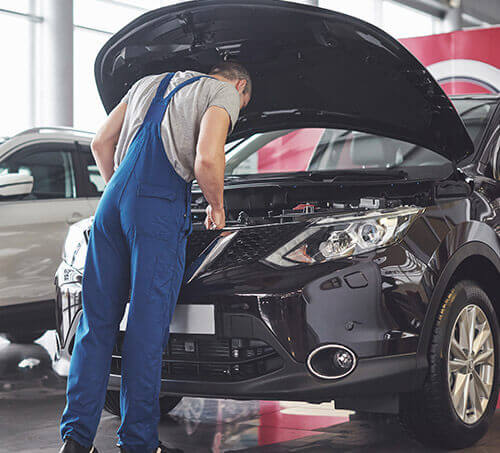Off-roading can be thrilling and rewarding, but it also puts significant stress on your vehicle’s transmission. One of the most common issues off-roaders face is transmission overheating, which can lead to serious damage, costly repairs, and even transmission failure if not addressed promptly. Fortunately, there are several things you can do to prevent transmission overheating and keep your vehicle performing at its best during your off-road adventures. This guide will cover the key causes of transmission overheating and provide practical tips to keep your transmission cool under pressure.
Understanding Transmission Overheating in Off-Road Conditions
Transmission overheating occurs when the transmission fluid reaches excessively high temperatures, typically above 200°F (93°C). This can be particularly problematic during off-road activities, where the transmission works harder due to the challenging terrain, steep inclines, frequent gear changes, and heavy loads.
Why Transmission Overheating is a Problem:
- Fluid Breakdown: High temperatures can cause the transmission fluid to break down, losing its ability to lubricate and cool the transmission effectively.
- Increased Wear: Overheating accelerates wear on transmission components, such as clutches, bands, and gears, leading to reduced performance and potential failure.
- Seals and Gaskets Damage: Excessive heat can damage seals and gaskets, causing leaks and further compounding overheating issues.
Tips to Prevent Transmission Overheating During Off-Road Adventures
- Install a Transmission Cooler
One of the most effective ways to prevent transmission overheating is to install an auxiliary transmission cooler. Transmission coolers are designed to reduce the temperature of the transmission fluid, providing additional cooling capacity beyond the vehicle’s standard cooling system.
Benefits of a Transmission Cooler:
- Enhanced Cooling Efficiency: An auxiliary cooler helps dissipate heat more effectively, especially under extreme conditions.
- Extended Transmission Life: Keeping transmission temperatures in check reduces wear and extends the lifespan of your transmission.
Types of Coolers:
- Tube-and-Fin Coolers: These are the most basic and affordable type, using a series of tubes and fins to disperse heat.
- Plate-and-Fin Coolers: More efficient than tube-and-fin, these coolers use stacked plates to increase the surface area for cooling.
- Stacked-Plate Coolers: The most efficient type, stacked-plate coolers offer superior cooling capacity and are ideal for heavy-duty or extreme off-road applications.
- Monitor Transmission Temperature
Keeping an eye on your transmission’s temperature is crucial when off-roading. Many modern vehicles are equipped with transmission temperature gauges, but if yours isn’t, consider installing an aftermarket gauge to keep track of fluid temperatures.
There is a potential downside to auxiliary coolers, and that is the type of transmission cooler line connections that they use. Most factory cooler lines have pressed metal fittings which are very resistant to leaking. Aftermarket auxiliary coolers rely on standard rubber hose with barbed fittings and hose clamps, which are not as robust. If you add an auxiliary cooler, you will want to make it a habit to check your cooler line fittings from time to time to make sure they are tight and are not leaking.
How to Monitor Temperatures:
- Use a Transmission Temperature Gauge: A dedicated gauge provides real-time data, allowing you to take action before overheating becomes a serious problem.
- Set Alerts or Warnings: Some aftermarket gauges allow you to set temperature warnings or alerts, so you’re immediately notified if the transmission gets too hot.
- Use the Correct Transmission Fluid
Using the correct type and grade of transmission fluid is vital for maintaining proper transmission temperatures, especially when off-roading. Transmission fluids are formulated with specific additives to provide the necessary lubrication, cooling, and protection for your transmission.
Tips for Fluid Selection:
- Refer to the Owner’s Manual: Always use the transmission fluid recommended by the vehicle manufacturer, as using the wrong fluid can lead to overheating and damage.
- Consider High-Performance Fluids: For off-road vehicles, consider using high-performance or synthetic transmission fluids that offer better heat resistance and stability under extreme conditions.
- Avoid Excessive Heat Build-Up
Off-roading often involves challenging scenarios like rock crawling, steep hill climbs, and heavy towing, all of which can generate a lot of heat. Being mindful of how you drive and taking steps to avoid excessive heat build-up can help keep your transmission cool.
Driving Tips to Prevent Overheating:
- Take Breaks: If you’re off-roading for extended periods, take breaks to allow the transmission to cool down. This is especially important after intense driving, such as towing or navigating steep inclines.
- Avoid Riding the Brakes: Constant braking generates heat, which can transfer to the transmission, especially in vehicles with integrated braking and transmission cooling systems. Use engine braking where possible.
- Use Low-Range Gearing: When navigating tough terrain, use low-range gears to reduce the strain on the transmission. This allows the engine and transmission to work more efficiently, generating less heat.
- Maintain Your Vehicle Regularly
Regular maintenance is key to preventing transmission overheating. Keeping your vehicle in top shape ensures that all systems, including the transmission, can handle the demands of off-roading.
Maintenance Tips:
- Check Fluid Levels Regularly: Ensure your transmission fluid is at the correct level, as low fluid can cause overheating. Check for leaks and top off as needed.
- Replace Old Fluid: Over time, transmission fluid can degrade, losing its cooling properties. Replace old or burnt fluid with fresh fluid to maintain optimal performance.
- Inspect Cooling System Components: Check the condition of your vehicle’s cooling system, including the radiator, fans, and any installed transmission coolers. Ensure there are no blockages, leaks, or malfunctions that could impede cooling.
- Consider Upgraded Transmission Components: Check with a transmission specialty shop to see if there are upgrades that can be made to your transmission that would better handle the increased stress of off-roading or heavy towing.
For off-road enthusiasts who frequently tackle extreme terrains, upgrading certain transmission components can help manage heat more effectively and extend the life of your transmission.
Potential Upgrades:
-
- Heavy-Duty Torque Converters: Upgrading to a heavy-duty or off-road-specific torque converter can help reduce slippage and heat build-up during off-road driving.
- Performance Valve Bodies: A performance valve body can improve the efficiency of fluid flow within the transmission, reducing heat and improving shift quality.
- Kevlar Clutches: Clutch packs can be made of Kevlar, which is more resistant to heat and will last longer than traditional clutch pack material.
- Heavy-Duty Drums, Shafts, Etc.: Many of the internal “hard part” components of the transmission are available in heavier duty aluminum billet construction, which are more heat resistant and stronger than standard OEM components.
Preventing transmission overheating during off-road adventures is essential for maintaining the performance and longevity of your vehicle. By installing a transmission cooler, monitoring temperatures, using the correct fluids, and practicing smart driving habits, you can keep your transmission operating within safe temperature ranges even under the most demanding conditions. Regular maintenance and thoughtful upgrades further ensure that your transmission is well-prepared to handle the unique challenges of off-roading, allowing you to enjoy your adventures without worrying about overheating or damage.
If you’re serious about off-roading, investing in these preventive measures can save you from costly repairs and keep your vehicle performing at its best on every trail.


 Free Customer Towing Service
Free Customer Towing Service  Free TrueTest™ Inspection
Free TrueTest™ Inspection  Fast Transmission Services
Fast Transmission Services  Comprehensive Warranty in Denver
Comprehensive Warranty in Denver 

























